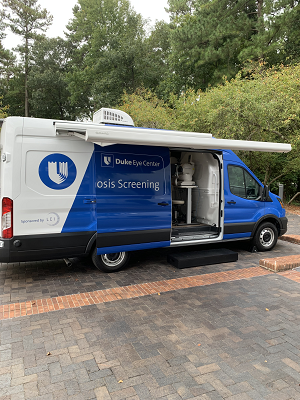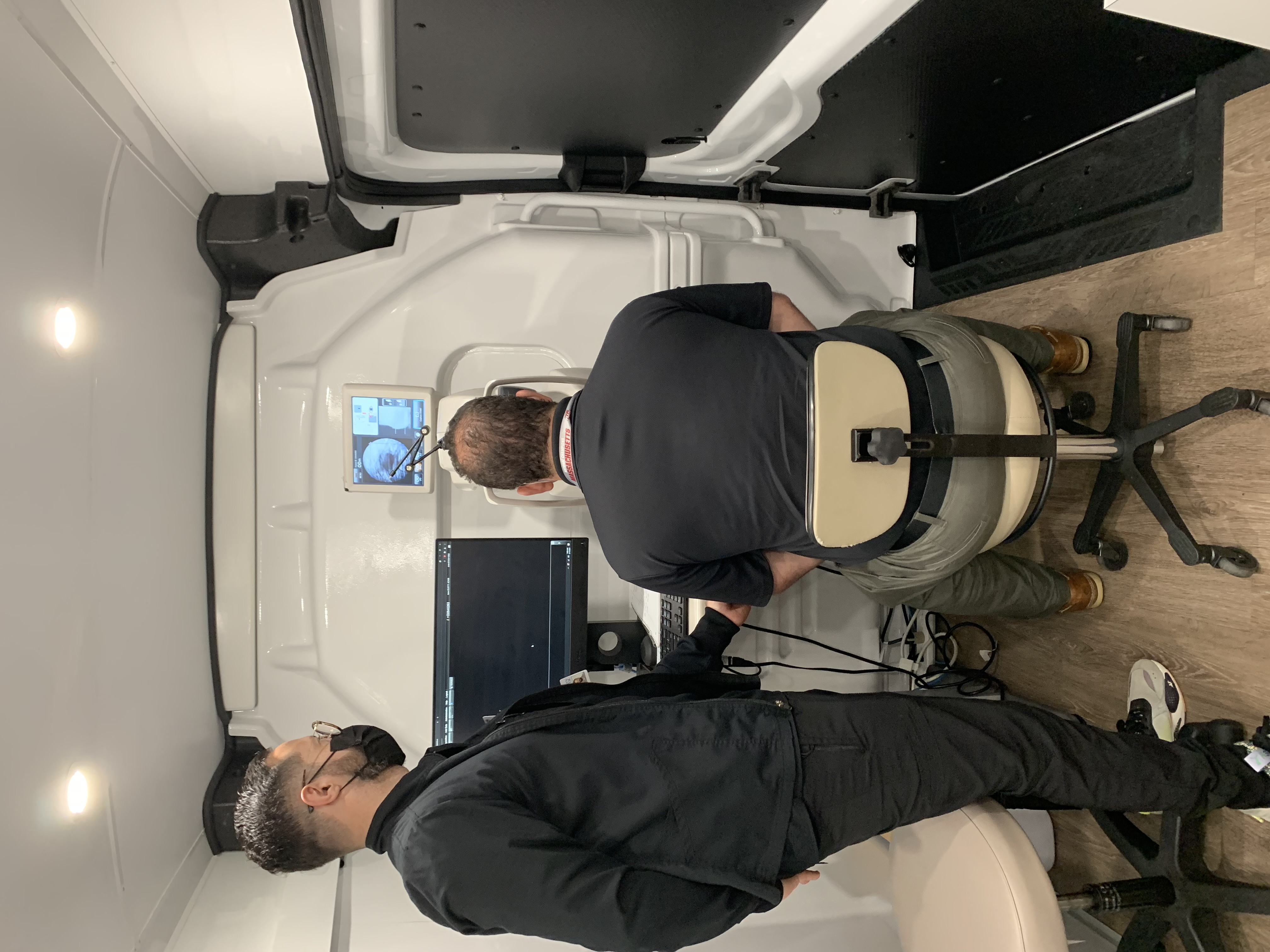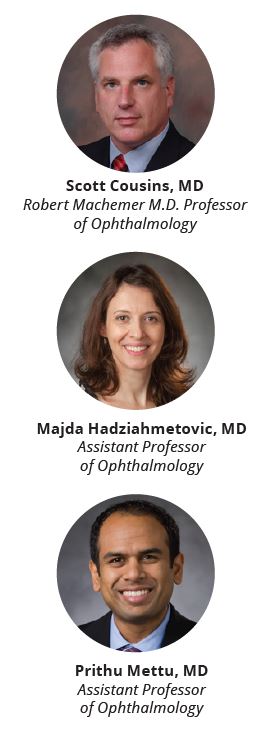
Duke Eye Center recently established a mobile eye imaging center – a van that has been modified and equipped to screen patients at primary care clinics to identify eye disease. This advancement in remote diagnostics became reality from a passionate focus of Scott Cousins, MD for access to eye care and a generous gift from LC Industries Foundation.
Access to healthcare is a major unmet need and heightened because of the COVID-19 pandemic. Poor access, especially for people with diabetes, can lead to blinding eye disease due to delayed diagnosis and care for diabetic retinopathy (DR), which is present in more than two million diabetics in the U.S. It is estimated that only 40-50% of patients adhere to American Diabetes Association guidelines for screening, and only half of those patients are given a referral to make an appointment or appear in clinic for a dilated eye exam. Early detection of diabetic retinopathy allows early intervention to slow or even stop vision loss caused by DR.
 Cousins, Robert Machemer, M.D. Professor of Ophthalmology, developed the concept for remote diagnosis that uses a combination of color fundus photo (CFP) and optical coherence tomography (OCT), two complementary types of eye imaging, on non-dilated pupils to image the retina. The remote screening approach can be performed by non-expert imagers, using less expensive equipment, at a location that is convenient to the patient and the primary care doctor. This provides an accessible, efficient, low-cost screening option, which improves outcomes and patient satisfaction.
Cousins, Robert Machemer, M.D. Professor of Ophthalmology, developed the concept for remote diagnosis that uses a combination of color fundus photo (CFP) and optical coherence tomography (OCT), two complementary types of eye imaging, on non-dilated pupils to image the retina. The remote screening approach can be performed by non-expert imagers, using less expensive equipment, at a location that is convenient to the patient and the primary care doctor. This provides an accessible, efficient, low-cost screening option, which improves outcomes and patient satisfaction.
“Improvements in eye imaging technology now make remote diagnosis a feasible real-world alternative to an annual dilated eye exam. Our research shows this approach to be as effective as a traditional examination for identifying DR. The LC Industries Foundation gift has made possible the potential to change the way eye diseases are diagnosed and managed in the future,” said Cousins.
 The new mobile unit equipped with necessary imaging equipment is parked outside of a primary care office, images are taken in the van and electronically transferred to a cloud-based storage system that can be accessed by graders at a HIPAA-compliant reading center. Images are read by ophthalmologists, and at-risk patients are contacted by a member of the Duke Eye Center staff to schedule an appointment with retinal specialist for further examination. An automated image interpretation tool with a deep learning model is in development, and early research shows it to be as effective as a human image reader in identifying diabetic retinopathy.
The new mobile unit equipped with necessary imaging equipment is parked outside of a primary care office, images are taken in the van and electronically transferred to a cloud-based storage system that can be accessed by graders at a HIPAA-compliant reading center. Images are read by ophthalmologists, and at-risk patients are contacted by a member of the Duke Eye Center staff to schedule an appointment with retinal specialist for further examination. An automated image interpretation tool with a deep learning model is in development, and early research shows it to be as effective as a human image reader in identifying diabetic retinopathy.
Majda Hadziahmetovic, MD, assistant professor of ophthalmology, is leading the academic effort of the program in conjunction with Cousins and Prithu Mettu, MD, assistant professor of ophthalmology who oversee the operations.
“Our studies have demonstrated feasibility of this innovative diagnostic approach, with the goal that remote diagnosis becomes standard of care in early diagnosis and monitoring of many sight-threatening diseases,” said Hadziahmetovic.
LC Industries Foundation is led by William Hudson and has provided significant funding over the years to Duke Eye Center for research and patient care in the prevention of eye disease. The Foundation is the primary benefactor of the state-of-the-art clinical pavilion that is named the Hudson Building at Duke Eye Center, which opened in 2015. The gift from LC Industries Foundation to support this project has provided not only the vehicle and equipment, but also the ability to collect more data and further show the impact of remote diagnostics in eye care.
“Having a way to assess people for blinding eye disease at their convenience by bringing the screening to them, I think this is a real game-changer,” said Hudson. “Hopefully, this approach can lead to early intervention to slow or stop vision loss among people at risk for eye disease.”
